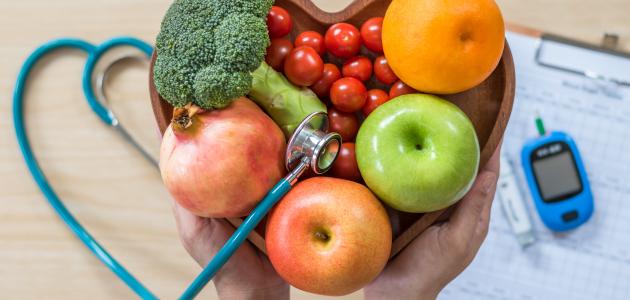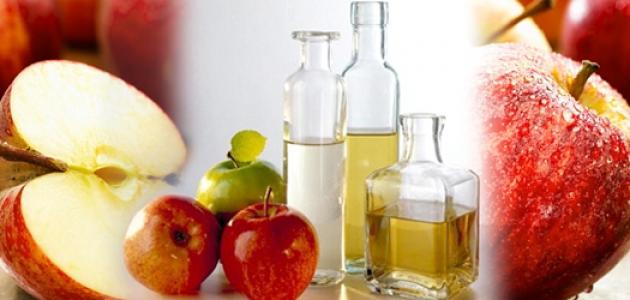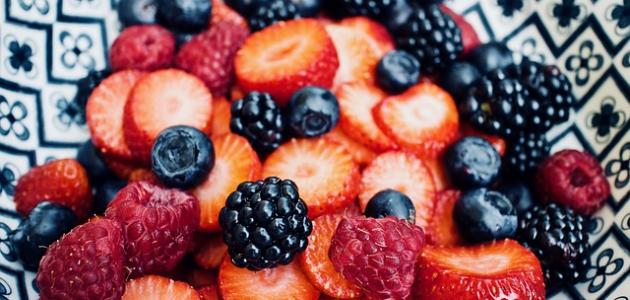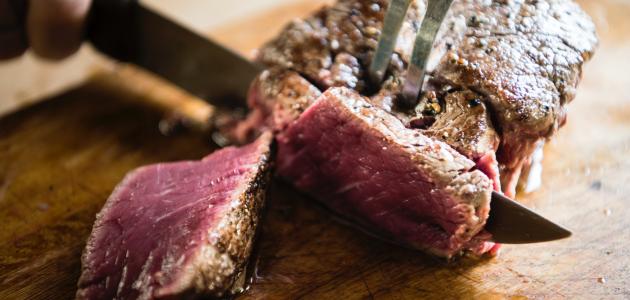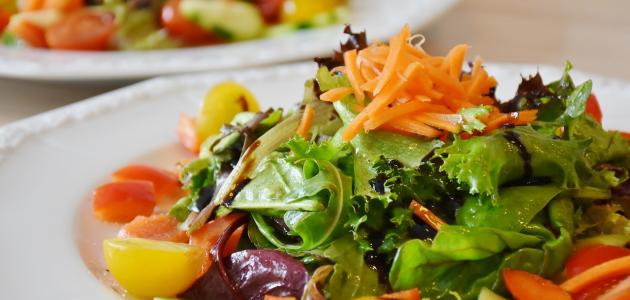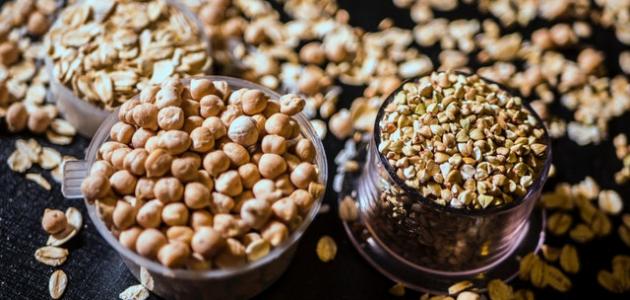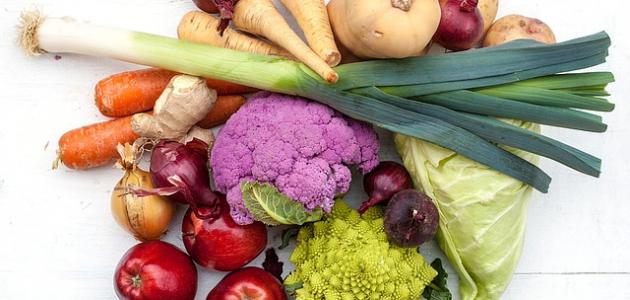Is guava useful for diet?
It should be noted that there is no specific food or reason for weight gain or obesity, and there is also no specific reason or food for weight loss. The best way to lose weight is by reducing the total calories consumed during the day, in addition to physical activity. But in general; All specialists advise people who want to lose weight to diversify fruits and vegetables in their diet.
Guava is one of the appropriate fruits to add to a diet that aims to lose weight, as one grain contains 37 calories, and contains the equivalent of 12% of the daily requirement of dietary fiber, and eating it enhances the feeling of satiety and fullness, in addition to... As it is rich in vitamins and minerals. In a study published in the Journal of Clinical and Diagnostic Research in 2016, it was noted that eating guava fruit has a role in reducing blood sugar levels, cholesterol levels, and low-density lipoprotein. Or what is known as harmful cholesterol (LDL), and it also increases the level of high-density lipoprotein. Or what is known as good cholesterol (HDL).
Nutritional value of guava
The table below shows the nutrients available in 100 grams of guava:
| nutritional element | Nutritional value |
|---|---|
| water | 80.8 ml |
| Calories | 68 calories |
| Protein | 2.55 grams |
| Fats | 0.95 grams |
| Carbohydrates | 14.32 grams |
| Dietary fiber | 5.4 grams |
| Calcium | 18 milligrams |
| Iron | 0.26 milligrams |
| magnesium | 22 milligrams |
| phosphorous | 40 milligrams |
| potassium | 417 milligrams |
| Sodium | 2 milligrams |
| zinc | 0.23 milligrams |
| Copper | 0.23 milligrams |
| selenium | 0.6 mcg |
| vitamin C | 228.3 milligrams |
| Vitamin B1 | 0.067 milligrams |
| Vitamin B2 | 0.04 milligrams |
| Vitamin B3 | 1.084 milligrams |
| Vitamin B6 | 0.11 milligrams |
| folate | 49 micrograms |
| Vitamin A | 31 micrograms |
| Vitamin E. | 0.73 milligrams |
| Vitamin K | 2.6 mcg |
An overview of guava and its benefits
Guava (scientific name: Psidium guajava L.) is a tropical fruit. Its origin dates back to the United States of America. It is spread in the warm regions of Central America and Mexico. It is now grown in the continent of Asia and the western coast of Africa. The guava has a round shape. Or elliptical, and its shape varies according to the species, and the length of the fruit ranges between 4 to 12 centimeters.
Read also:What is the correct dietThe thickness of the outer peel of the guava fruit varies, and the texture and taste of the outer peel of the guava vary depending on the species. Some of them are sweet and tender in texture, while others have a rough texture and a bitter taste. Their color varies according to ripeness, as they are often green and turn yellow or red-brown. Or brown when mature. The pulp may be sweet or bitter, and it may be white or pink in color. The number of seeds inside the fruit and its degree of hardness vary according to the species to which it belongs.
It should be noted that guava provides many health benefits to the body, as it possesses antioxidant, antibacterial, and anti-inflammatory properties. It is rich in nutrients important for health. Such as dietary fiber, potassium, and vitamin A. Guava is also distinguished by being one of the richest sources of vitamin C, as it provides the body with twice the daily needs of this vitamin, and it contains an amount of vitamin C that is approximately twice the amount found in oranges. It should be noted that vitamin C It is important for the functions of the immune system, while dietary fiber and potassium contribute to maintaining heart health.
Guava damage
Guava safety level
Eating guava fruit in the natural quantities found in food Mostly safeAnd also probably safe Consuming guava extracts in the short term, but consuming guava leaf extract may cause side effects in some people. Such as nausea and stomach pain.
Read also:Bodybuilding dietFor pregnant and breastfeeding women, eating guava fruit is considered... Mostly safeHowever, there is not sufficient information about the degree of safety of consuming guava in large quantities, so women are advised not to use guava extracts or nutritional supplements that contain them during periods of pregnancy and breastfeeding. Until information emerged showing the degree of safety of their use.
Warnings of using guava
There are some cases in which one must be careful and pay attention when consuming guava, and among these cases we mention the following:
- People with eczema: Guava tree leaf extract contains chemicals that cause skin irritation, especially in people who suffer from skin diseases, such as eczema, so people with eczema are advised to avoid guava tree leaf extract.
- People with diabetes: There is concern that guava may cause a drop in blood sugar levels, so people with diabetes are advised to monitor their blood sugar level when eating guava.
- People who will undergo surgery: Guava may reduce blood sugar levels, which can affect blood sugar levels during and after surgical operations. Guava may cause an increase in bleeding, so it is recommended to stop eating guava for two weeks before undergoing any surgery.
Useful fruits for diet
Contrary to what some people think; There is no need to avoid carbohydrates in a diet that aims to lose weight, especially fruits of all kinds, as they contain many beneficial nutritional elements, and they also contribute to increasing the feeling of fullness and contentment. Below is a mention of some types of fruits suitable for diets:
Read also:Weight loss steps- Grapefruit: Water makes up 90% of grapefruit, and this fruit contains many beneficial nutrients, in addition to being low in calories. Half a medium-sized grapefruit contains 60 calories. A study published in the Journal of Medicinal Food in 2006 indicated that eating half a grapefruit before meals contributes to weight loss, but it should be noted that the mechanism of the effect of grapefruit on weight loss is unclear, and needs more research, but adding grapefruit Fruit is a logical choice for a diet aimed at losing weight.
- apple: It is low in calories and contains dietary fiber, which makes it a good choice for weight loss. Foods that contain dietary fiber help increase the feeling of fullness and slow down the digestion process. A medium-sized apple contains 4.37 grams of dietary fiber; This covers 16% of the daily requirement of dietary fiber. A review of a group of studies published in the Journal of the American College of Nutrition in 2018 indicated that consuming apples may help with weight loss, but this is not certain, and there is still a need for more research and studies to confirm its effect and understand it better.
- Passion fruit: The origin of passion fruit goes back to South America, and it is characterized by its hard peel, which is purple or yellow, while the pulp is soft and contains seeds. It is worth noting that one passion fruit, which weighs 18 grams; It contains 17 calories, and is a rich source of dietary fiber. Five of them contain 42% of the daily requirement of dietary fiber, and less than 100 calories. Passion fruit also contains iron, vitamin C, vitamin A, and potassium.
- kiwi: It is a small fruit with a brown skin, green or yellow pulp, and small black seeds. Kiwi is a rich source of vitamin C, vitamin E, folate, and dietary fiber.[18] In a study published in the journal Nutrients in 2018, it included 41 people suffering from prediabetes, and it was noted that those who ate two kiwi fruits daily for 12 weeks noticed an increase in their vitamin C level, a decrease in blood pressure, and a decrease in circumference. Waist equivalent to 3.1 centimetres.
- orange: It is rich in water and dietary fiber, which enhances the feeling of satiety and fullness. A study published in Nutrition magazine in 2017 indicated that drinking orange juice as part of a low-calorie diet does not negatively affect weight loss, but rather reduces insulin resistance and improves fat levels. In the blood, it enhances the consumption of beneficial nutrients. The study concluded that consuming orange juice in moderation does not prevent weight loss.
- avocado: Avocado is rich in monounsaturated fat, which is healthy fat and beneficial for the health of the body. Avocado is also rich in dietary fiber. As 100 grams of avocado contains 7 grams of fiber, therefore, eating this fruit enhances the feeling of satiety and fullness. A study published in Nutrition Journal in 2013 indicated that eating half an avocado fruit as part of a lunch meal enhances satiety for a period ranging from 3 to 5 hours after lunch in overweight adults. However, this study is not sufficient to confirm the effect of avocado on weight loss, and more studies are still needed to clarify its effect on weight loss in adults with different body mass indexes.

